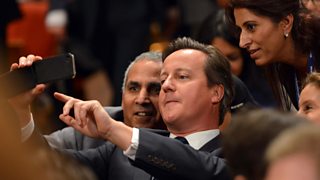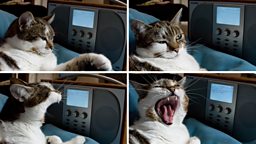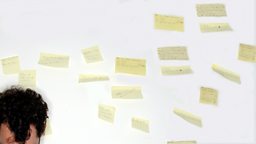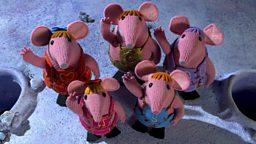Are you Selfie-ist?
Selfies have a bad reputation. Selfie sticks branded as ‘wands of narcissism’, celebrities reviled for cataloguing their every outfit and the shock-selfies of adolescents with scant self-awareness photographing themselves in wildly inappropriate situations and then being lambasted for it on social media.
Robert Cornelius took what is thought to be the first self-portrait photograph in 1839 using the daguerreotype process, and now, according to data from Samsung, selfies make up almost one-third of all photos taken by people aged 18-24.
So considering how ubiquitous they are, why do selfies enrage some of us? We all have family photo albums stuffed full of shots of ourselves at various stages of development, so why does the fact that it’s been taken by the subject of the photo rile us so badly? asks what makes us snap about selfies?
That Ellen DeGeneres Oscar Selfie
A sign of the times
This is partly a generational shift in attitude. Take a look at a family album from the 70s. Not very many laughing, happy, relaxed shots. You’re much more likely to find a group of people standing uncomfortably around a car or elderly relative, dressed in beige and sporting grim smiles. This was photography to celebrate an occasion - a new car, a summer holiday, a relative’s visit….”take one for the album.” And then the film would be trotted down to Boots and the results pored over a week later. “Don’t waste the film!” was a frequent warning; simply taking a picture of yourself was vain nonsense reserved for artists or small children who’d gleefully got hold of the camera.

Celebrity inspiration?
The selfie is the child of social media. Something shifted in the world of celebrity; we went from the long-distance, remote worship of stars like Marlene Dietrich to feeling ill-served unless we know the inside leg measurement of our favourite actor. We demanded, and got, 24/7 access. Headlines scream about ‘up close and personal with…’ , ‘inside the home of…’, ‘See her without make-up’. The celebrity selfie allows us to fondly imagine we are seeing a real-time, real life shot. Sometimes the nature and frequency of selfies can actually become fameworthy in its own right (see Kim Kardashian). The selfie allows the celebrity to control the image, rather than being snapped after a work-out by a grubby paparazzo from a hedge, and still feed their fans’ apparently urgent desire for more and more access.
Aesthetic snobbery?
If you have a mobile phone with a camera, and they pretty much all do nowadays, you have the means within your grasp to take a selfie. No artistic skill is necessary, no styling, no technical know-how except point and click. You don’t need to be awarded World’s Most Beautiful Person, you can deem yourself aesthetically worthy of a selfie. “This is me, and I like it enough to share it.” Is this enraging for those who believe that only perfection deserves to be celebrated?

Narcissism
In a country where ‘thinks a lot of herself’ is regarded as an insult, deliberately spending the time taking and broadcasting a picture of oneself can be seen as breathtakingly narcissistic. ‘Who do you think’s going to want to look at you?’
This generation is different. It’s a group of people to whom ‘picture or it didn’t happen’ is a creed. it’s about documenting their reality; I was there, and here’s the proof. I looked like this, and here’s the proof. It’s about putting a marker on time. These are young people living in the Cloud - rented accommodation for life, looser ties with family and a fluid career structure. Is it any wonder they need hard evidence of their reality?
The Vlogger Power Couple Selfie
Misogyny?
, a project by DigitalThoughtFacility, analysed 3,200 Instagram selfies across the world and every city analysed yielded significantly more selfies taken by women than men. Women’s poses were considered more expressive too, with more elaborate head tilts. Frequent selfie-taking is often listed in men’s magazines as ‘a sign of trouble’ in a prospective girlfriend – a sign of neurosis and perfectionism. But the jury is out on what women’s motivations are for taking selfies. It seems to be more about garnering support from other women, not men, or simply capturing an enjoyable moment in time. As is so often the case with issues around young women, we’ve trapped them in a double bind. Learn to love yourself, have a healthy body image, celebrate yourself, but for heaven’s sake don’t think you’re worth taking a photo of …. For some men, possibly women celebrating moments of solitary happiness triggers an insecurity…’but how can she be happy? WHAT ABOUT ME?!’
Emma Watson's Graduation Selfie
Neediness?
Are selfie-takers more to be pitied than censured? Are people posting them asking for approval – please like me, both metaphorically and in Facebook’s case, entirely literally? This is a common view of selfies, that they have been taken purely to provoke a ‘oh, you look great’ response, but if so, what’s wrong with that? Anyone posting on social media has accepted the rules, that a posted picture could just as easily get a negative response, so again it comes down to confidence.
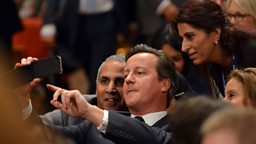
Envy-making?
It’s true that particularly over the summer months, those of us staring out of a rain-streaked window may have experienced the odd ‘oh get lost’ moment when spotting a selfie of a friend sipping a cocktail by the pool, but the internet happily contains enough gleeful selfies of people celebrating gigantic spots, tragic Christmas jumpers, strange injuries and unfortunate make-up hiccups to reassure us that not all is perfect in this less than perfect world.
Humans have always had a need to document their progress, from cave paintings to portrait painters to diarists. Charles Pooter’s ‘Diary of a Nobody’ echoed the Edwardian habit of documenting daily life, but the humour came out of the fact that he had decided that his ‘little life’ would be just as interesting for future readers as those of the statesmen of the day. So if you’re a selfie-slammer, it probably says more about you than the person behind the camera. Smile!


